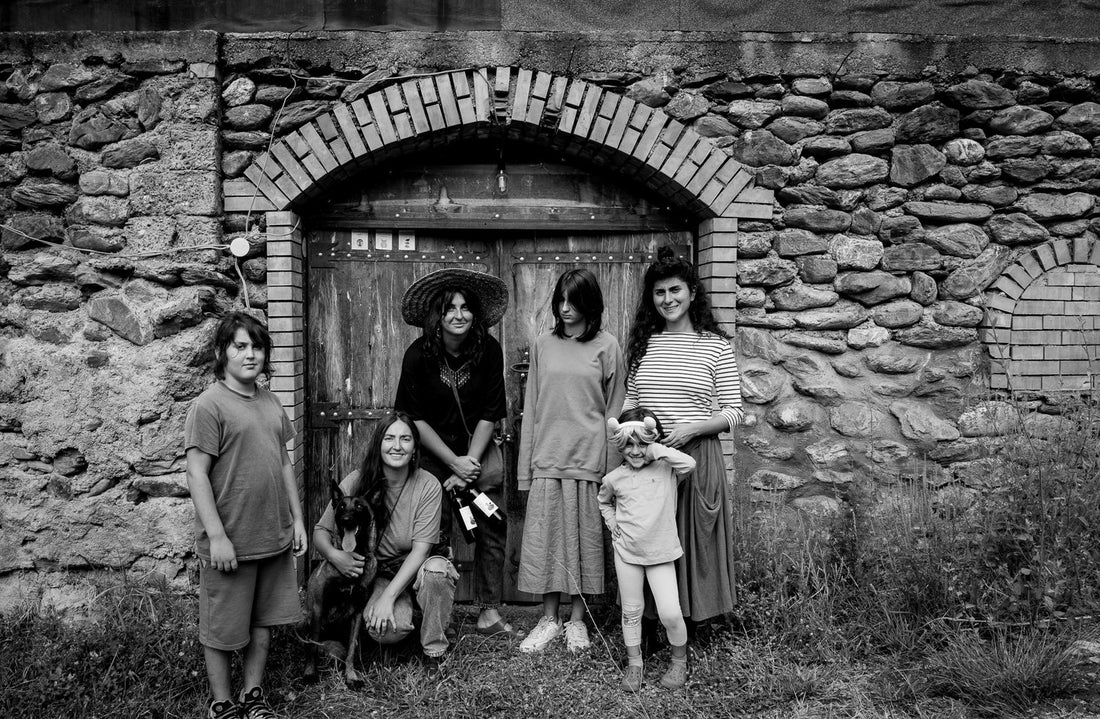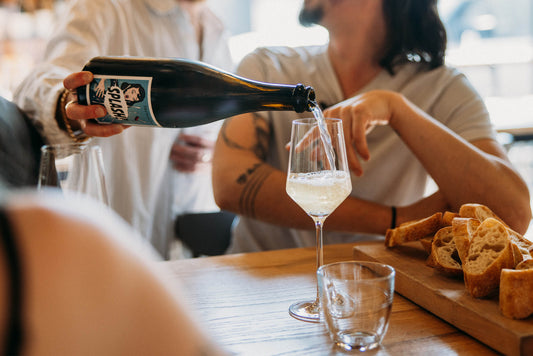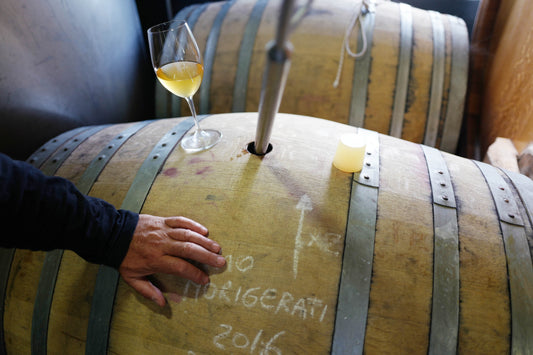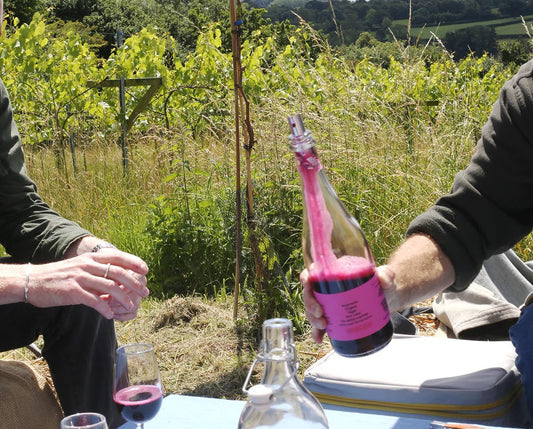We spoke with Mariana Fonseca from Sager + Wine, a London based importer with a dynamic portfolio featuring 20+ women winemakers
To celebrate International Women’s Day we hosted a women winemaker focused tasting with London importer, Sager + Wine. We were taken through a beautiful range of wines led by Mariana Fonseca who is part of the sales and import team. We asked her about her experience in the wine industry so far and the ways in which women are shaping the future of wine, here’s what she had to say…
Tell us a bit about Sager and Wine and what drew you to working with them
I have become more interested and curious about working with lower intervention wines in recent years. Not only because I believe that we should try to minimise our impact on the environment as much possible but also because I believe there are some nuances in the flavours, layers and the energy within the wines. I have always admired the wine lists and presence the Sager and Wilde restaurants have brought to the London wine scene, so I knew that the new Sager and Wine sister company would certainly have a similar input and drive.
It is getting close to a year of working with them and it has been great to become more familiar with such a diverse and evolving portfolio of wines and projects that I am proud to sell and represent.
As a woman in wine yourself, could you talk to us briefly about your experience in the industry. What do you love about it? What’s been challenging?
I have a background in Arts and moved to London initially to complete a masters in Fine Arts. I fell in love with wine whilst working in hospitality and decided to change career after completing a couple of WSET courses. I believe the wine industry, as with many other industries is still run predominantly by men and still has room to evolve towards being more inclusive. I have experience this in some areas of the industry, which can be at times a little intimidating or discouraging. But one cannot generalise as I have worked with amazing men that were supportive and inclusive. I do however feel the number of women engaged as wine professionals is growing and will continue to increase. I felt this when I completed my Diploma where my class had quite a large number of women, and especially since I started working at Sager and Wine and working with lower intervention wines. I definitely feel there are way more women around me which is both inspiring and encouraging.
With an ever growing portfolio and a large proportion taken up by female winemakers, what does Sager + Wine look for in a winemaker or when visiting vineyards?
The portfolio has had a very exciting growth in the last couple of years. We are now at a very exciting point where we feel we have a very interesting and diverse range. When we take on new producers the main points are the work in the vineyard and cellar as well as flavour profile and quality of the wine. To be more specific most of the growers we work with adopt either organic or biodynamic principles in the vineyard as a minimum. We favour not only being as sustainable as possible in the vineyard as well as adopting a hands off approach in the winery. This generally includes spontaneous fermentations with native yeasts, less manipulations and additions in general. Sager and Wine has always been very encouraging and vocal about including women winemakers in the portfolio, this is why we now have around 20 to 25 projects with women in leading rolls.
When you attended our wine fair last year, the majority of your wines were made by women. As a team, was this a conscious decision and what sort of response do you get from customers?
We are proud to have many projects in our portfolio that are lead by women. As a team we like to encourage and promote this as unfortunately women in wine are still a minority. Of course there are lots of other factors when we decide on new listings but it is certainly important for us. We believe the response from our customers is very positive and we increasingly see some of our customers wanting to promote women winemakers and growers on their lists.

Who is your favourite female winemaker at the moment and why?
I have been lucky enough to have tasted several incredible wines from many amazing women. As such it would be difficult to choose one specifically. From our portfolio for example, I really enjoy the wines from Esmeralda Garcia for example, making incredible single vineyard Verdejo in Segovia.
When you came to host a tasting at Native Vine, you spoke specifically about Georgian wine production and the conflict of gender here. Could you give us a brief overview on some of the issues women winemakers can face in countries such as this and the ways in which they are being overcome?
I think with all regions that have had a long viticultural history where men where traditionally the ones that lead these sort of work it takes time to change the mind set and perception of people. This does not happen only in the wine industry as we know, but in many areas of work and life. Georgia is an example of this but it is certainly changing and there is an encouraging number of women that have been very vocal about this, promoting and encouraging other women to follow their dreams and take on more leading rolls in the wine industry. Our producers Ketevan Berishvili, Keto Ninidze and Ènek Peterson and Tamuna Bidzinashvili have certainly had a role to play in the new wave of female producers in the Georgian natural wine scene.
Based on the changes you have seen so far, what would you hope for the future of women in wine?
It has been great to witness an increased number of women taking on more leading roles in the wine world, becoming winemakers, critics, viticulturists, consultants, salespersons.. I can only hope at this day and age for equal opportunities not matter what your gender, colour or background is in all areas of the wine industry.








